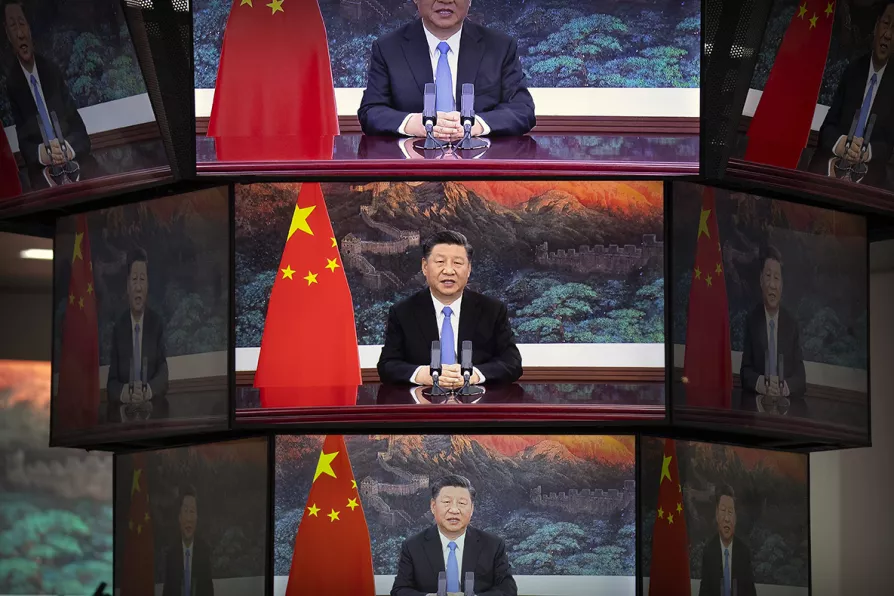As tens of thousands return to the streets for the first national Palestine march of 2026, this movement refuses to be sidelined or silenced, says PETER LEARY

 Video screens show Chinese President Xi Jinping as he delivers an address to the opening ceremony of the China International Import Expo in Shanghai
Video screens show Chinese President Xi Jinping as he delivers an address to the opening ceremony of the China International Import Expo in Shanghai
CAPITALISM is in turmoil. Ongoing economic stagnation, alongside the startling failure of the major Western countries to contain the coronavirus pandemic, is producing a crisis of legitimacy and a corresponding sense of panic among the ruling class.
The leading capitalist power, the US, is the worst affected. Although it remains for the time being the world’s largest economy in GDP terms, its quality of life indicators are deteriorating. The poverty rate has reached 15 per cent, the highest it’s been for 50 years. Infrastructure is crumbling.
Large parts of the country are suffering chronic unemployment, a situation that Trump’s trade wars have singularly failed to fix. Covid-19 has taken the lives of a quarter of a million people, with the number increasing by a thousand every day.

The US’s bid for regime change in the Islamic Republic has become more urgent as it seeks to encircle and contain a resurgent China, writes CARLOS MARTINEZ













